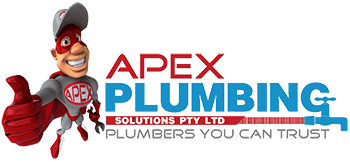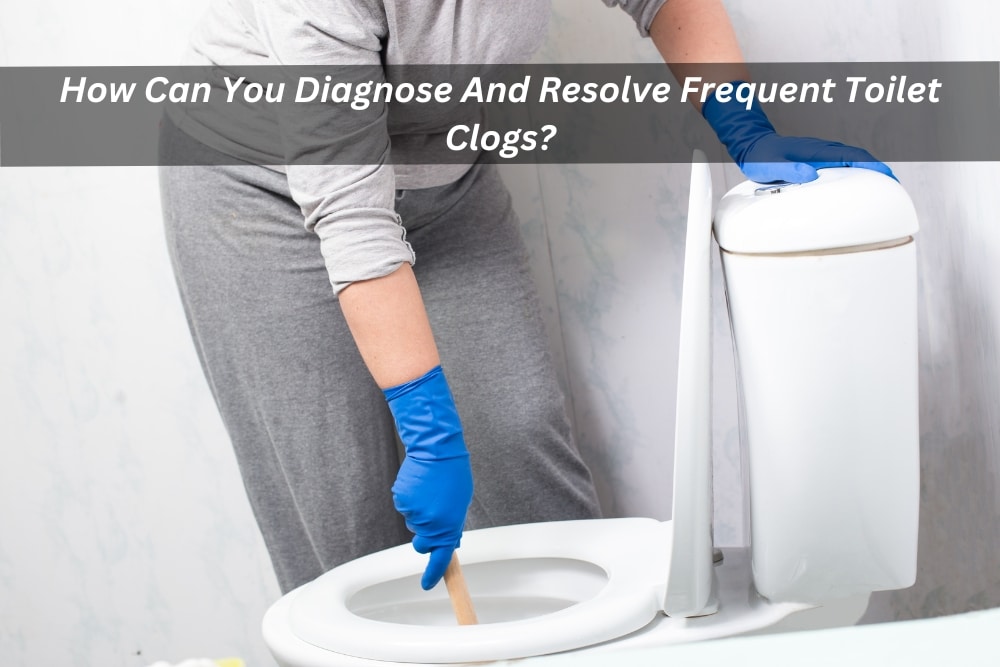If you’re constantly dealing with the frustration of a clogged toilet, you’re not alone. Frequent toilet clogs can be a major inconvenience, but the good news is that they are often preventable and resolvable. In this article, we’ll explore the common causes of frequent toilet clogs, how to diagnose the root of the problem, effective unclogging methods, and preventive measures to keep your toilet flowing smoothly.
Are you constantly dealing with clogged toilets?
Before diving into the causes and solutions, let’s acknowledge the annoyance of frequent toilet clogs. They disrupt your daily routine and can lead to embarrassing moments, especially when you’re a guest in someone else’s home. But fret not; understanding the reasons behind these clogs and learning how to address them can save you from this plumbing predicament.
Do your toilets clog easily, even when you’re using them properly?
It’s frustrating when you feel like you’re doing everything right, yet your toilet keeps clogging. Even if you’re using your toilet correctly, there could be underlying issues causing the recurring blockages. Let’s delve into some of the most common culprits behind these persistent clogs.
What are the common causes of frequent toilet clogs?
- Excessive toilet paper usage – One of the primary reasons for frequent toilet clogs is the excessive use of toilet paper. While toilet paper is designed to disintegrate in water, using too much of it in a single flush can overwhelm your plumbing system, leading to blockages.
- Flushing non-flushable items – People often flush items down the toilet that should not be there, such as sanitary products, cotton balls, dental floss, and even hair. These non-flushable items can accumulate and create stubborn clogs.
- Old and inefficient toilets – Outdated toilets with inefficient flush mechanisms may lack the power needed to clear waste properly. Upgrading to a more modern and efficient toilet can make a significant difference in preventing clogs.
- Mineral buildup – Mineral buildup, especially in areas with hard water, can accumulate in the trap and drain pipes over time. This accumulation reduces the flow and can lead to clogs.
- Sewer line issues – In some cases, the issue may not be within your toilet but in the sewer line itself. Tree roots, debris, or cracks in the sewer line can cause frequent clogs.
Now that you know some of the common causes of frequent toilet clogs, let’s explore how to diagnose the specific issue in your bathroom.
How can you diagnose the cause of a frequent toilet clog?
Diagnosing the cause of your toilet’s frequent clogs is the first step in finding a lasting solution. Here are some steps to help you identify the problem:
- Assess your flushing habits
Start by considering your flushing habits. Are you using excessive toilet paper, or do you flush non-flushable items down the toilet? Adjusting your habits can often alleviate the issue.
- Inspect the toilet
Examine your toilet for any visible signs of a problem. Look for mineral buildup, cracks, or worn-out parts that may need replacing.
- Check other drains
To determine if the issue is isolated to your toilet or part of a larger plumbing problem, check other drains in your home. If they’re also slow or clogged, the issue may be in your sewer line.
- Consult a professional
If you can’t identify the cause or if the problem persists despite your efforts, it’s time to call a professional plumber. They have the expertise and tools to diagnose and resolve complex plumbing issues.
How can you unclog a toilet that clogs often?
Once you’ve identified the cause of your frequent toilet blockage, it’s time to address the blockage. Here are some effective methods for unclogging your toilet:
- Plunger – A plunger is a simple yet powerful tool for clearing toilet clogs. Ensure you have a proper seal around the drain, then push and pull the plunger vigorously to create suction. This can often dislodge the blockage and restore normal flow.
- Toilet auger – For more stubborn clogs, a toilet auger, also known as a closet auger, can be effective. Insert the auger into the toilet drain and turn the handle to break up and remove the blockage.
- Chemical drain cleaners (use with caution) – Chemical drain cleaners can dissolve some clogs, but use them with caution. They can be harmful to both your plumbing and the environment. Follow the instructions carefully, and avoid mixing different chemicals.
- Professional plumbing service – If you’ve encountered some common problems with toilets and have attempted these methods without success or feel uneasy about handling the issue yourself, it’s advisable to reach out to a professional plumber. They possess the expertise needed to address even the most persistent clogs safely and efficiently.
How can you prevent frequent toilet clogs?
Preventing toilet clogs is preferable to dealing with them regularly. Here are some steps you can take to minimise the chances of your toilet getting clogged:
- Use toilet paper wisely
Use an appropriate amount of toilet paper, and avoid wadding up large amounts. Consider using thinner, septic-safe toilet paper, which disintegrates more easily.
- Don’t flush non-flushable items
Only flush toilet paper and waste down the toilet. Dispose of items like sanitary products, cotton balls, and dental floss in the trash.
- Upgrade your toilet
Consider replacing your old toilet with a more efficient model. Modern toilets have better flushing power and are designed to prevent clogs.
- Regular maintenance
Perform routine maintenance by cleaning your toilet and checking for signs of mineral buildup or damage. Address any issues promptly to prevent clogs from developing.
- Install a screen or drain cover
Installing a drain cover or screen can help prevent larger debris from entering your toilet drain, reducing the risk of clogs.
- Be mindful of what you flush
Educate your household members about what can and cannot be flushed down the toilet to prevent accidental clogs.
When should you call a plumber?
When should you call a plumber?
While DIY methods can often resolve toilet clogs, there are situations where it’s best to call a plumber:
- Persistent clogs: If your toilet clogs frequently despite your efforts, it may indicate a more significant underlying issue that requires professional attention.
- Foul odours: Persistent foul odours coming from your toilet can be a sign of a sewer line problem, which a plumber should investigate.
- Slow drains throughout the house: If you’re experiencing signs you need a toilet repair plumber, such as multiple drains in your home being slow or clogged, it may indicate a potential issue in your sewer line that requires professional evaluation.
- Bubbling or gurgling: If you notice bubbling or gurgling sounds in your toilet or drains, it could indicate a blockage in the sewer line, which requires a plumber’s expertise.
Conclusion
To sum up, frequent toilet clogs can be frustrating, but they are not insurmountable. By understanding the common causes, diagnosing the specific issue, using effective unclogging methods, and taking preventive measures, you can keep your toilet running smoothly and avoid the inconvenience of recurrent blockages. Remember, when in doubt or when facing persistent or unusual issues, don’t hesitate to seek the assistance of a professional plumber to ensure your plumbing system remains in top-notch condition. With the right knowledge and care, you can bid farewell to the hassle of frequent toilet clogs and enjoy a trouble-free bathroom experience.
Are persistent toilet clogs driving you up the wall? At Apex Plumbing Solution, we understand the frustration that frequent plumbing issues can bring. Our team of experienced plumbers is ready to diagnose and resolve even the most stubborn toilet clogs, ensuring your bathroom remains hassle-free. Don’t let plumbing problems disrupt your daily life any longer. Whether it’s a simple clog or a more complex issue lurking beneath the surface, we’ve got you covered. Contact Apex Plumbing Solution today, and let us put an end to your toilet troubles, so you can enjoy a smoothly flowing bathroom experience once and for all. Your convenience and peace of mind are our top priorities, and we’re here to help you every step of the way.


